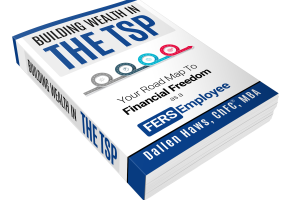You have worked hard your whole career looking forward to a comfortable retirement. You have patiently invested and planned diligently. You are excited to start drawing social security to reap the benefits of years of hard work. But, did you know that a huge portion of your social security benefits will most likely be counted as taxable income? This is a common mistake that we see people make all the time in their retirement planning.
Because of all the misconceptions that exist about social security, here are few things that we all need to keep in mind.
It Matters When You Start Drawing It
This may seem like a no-brainer but deciding when to start Social Security can make a huge difference on your benefits over your lifetime. The earliest you can start drawing it is age 62. But your benefits will be reduced by every month that you begin benefits before you FRA (Full Retirement Age). Your FRA will range from age 65-67 depending on when you were born. The Social Security estimate that you can get online, is your estimated monthly benefits if you start drawing at your FRA. Now if you choose to delay starting your benefits until after your FRA, your benefits will increase by 8% every year up until age 70.
Some might ask, “Why doesn’t everyone just wait until they are 70 to start drawing Social Security to get the highest monthly amount?” There are a couple of things to consider. Need and longevity. Some people can’t afford to delay starting their benefits so they start right at age 62. This may make sense for some but they will see up to a 30% decrease in their monthly benefits because of the early start. Now, if someone starts benefits at age 70 and they pass away at 71, they did not benefit much from their increased monthly amount. It is important to find a balance between your financial need and lifespan in order to maximise your benefits.
Taxes, Reductions, and More Taxes
If someone takes Social Security early (before their FRA) and they continue to work, their benefits will be reduced for every dollar they make in their jobs over certain limits. In this case, their benefits would be reduced for taking them early and reduced again for earning over certain amounts. Sometimes it still makes sense to continue to work in retirement just make sure you understand these limits. Once you reach your FRA, your benefits will not be reduced because of your income.
Like I mentioned in the intro paragraph, Social Security can in fact be taxable. The equation can get complicated but for simplicity’s sake, if you have income over certain thresholds, up to 85% of your benefits can be taxable. For this calculation, money that is taken out of certain retirement accounts (401(K), TSP, IRA) may be counted to push your benefits into taxable zones. When you are planning for retirement, make sure you run your numbers with taxes in mind.
Conclusion:
The rules can be a bit complex and hairy at times but please don’t let this scare you into making an uninformed decision. This is a decision that can make a huge difference in your life. Because people are living longer, retirement is making up a larger percentage of our lives. It might take a little time and energy to navigate the Social Security system, but it will be one of the best investments you make as you reap the rewards of an informed decision for years to come.


